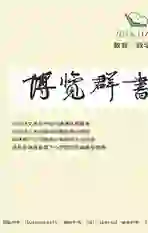A Study on the Movie Titles Translation in the View of English and Chinese Thinking Patterns
2016-10-11刘萍
刘萍
Abstract: Different translation of movie titles, from a certain extent, originated from the different ways of thinking patterns between Chinese and Westerners. Based on this, this paper focuses on the different characteristics of the expression in the movie title translation, summarizing the characteristics of Chinese and Western thinking patterns.
Key Words: movie titles, thinking patterns, translation
一、 Introduction
The translation of the movie title plays an important part in the decision to which movie to see. As shown, Chinese movie titles prefer to use some four-word structures or proverbs, while Western movie titles prefer to use some simple words. There are also many other features about the movie titles. This paper will also give some meaningful advice to the subsequent learners.
二、The Study
1.Features of English and Chinese Movie Title Translation
The Title with Four or Unlimited Words
Taking a glimpse of the Chinese movie titles, it is not difficult to find that the four- word structure occupies a large percentage. It seems that four-word structure tends to be more consistent with the aesthete tendency of Chinese. Being short, rigorous, vivid, full of rhythm, and influenced by the Chinese idioms, they are often involved with a profound cultural background. These four- word Chinese movie title occupies the dominant position in the movie naming, such as: Entrapment《偷天换日》, Head over Heals《神魂颠倒》, The Rock《石破天惊》, The Bridge of Madison County《廊桥遗梦》.
The Use of Figurative Words or the Use of Abstract Words
In the expression of movie titles, Chinese often use some figurative vocabulary. And a title is often involved with one or two specific images. While English movie titles are more common by using some abstract words or expressions of abstract conceptions, such as: Gone with the Wind 《飘》/《乱世佳人》, Amadeus《上帝的宠儿》, Always《天长地久》.
The Implicit Words or the Explicit Words
Most of us must have noticed that the words are more direct in Western movies, and the Chinese movie titles are more implicit. Chinese movie titles prefer to hide the real meaning under the title. By doing so, more room is given to audiences to imagine by themselves. There are plenty of these movies, such as: The Red Shoes《红菱艳》, Pretty Woman《风月俏佳人》, Its a Wonderful Life《风云人物》.
2.The Different Thinking Patterns
Holistic Thinking or Individual Thinking
In holistic thinking, people are habituated to analyzing everything from the whole at first and then switch to the separated and different parts. This way of thinking reflected in a language tradition shows focus on the wholeness, and an emphases on comprehensiveness. In contrast, English native speakers tend to disperse in thinking. Clear distinctions exist between the subject and the individual, man and nature, spirit and material. They pay more attention to the individuality. Therefore, differences in thinking pattern affect the expression of movie titles.
Figurative Thinking or Abstract Thinking
Another chief feature of Chinese thinking pattern is to be figurative, because the Chinese prefer to be more aware of the nature and principles of the objects with knowledge and experiences they have owned and are used to building up concrete things or objects to explain the principles from the view of their philosophy ideas. Compared with the Chinese figurative thinking, the Western thinking pattern is comparatively more abstract. To the Westerners, life is to explore the world in order to understand it and challenge the nature instead of considering ones own existence and moralities, etc. Due to their thinking pattern, abstract words are much more used for the translation of English titles, which greatly caters to foreigners taste in watching movies.
The Rational Thinking or Perceptual Thinking
Perceptual thinking is a personal emotional and mental process when we deal with the issues. In my opinion, perceptual thinking is just an unconscious feeling. However, reasonable thinking means judging things objectively, almost without any personal emotions. Compared to the Westerners, most Chinese prefer to make a judgment by their own feelings rather than the objective thinking. And this is not only reflected in choosing the movie, but nearly everything in daily lives. For example, when they choose a movie to see, they will consider actors, directors, the place shoot the movie and other reasons. When naming the movie titles, translators prefer to use some elegant words to modify the titles. And the English movie titles prefer to use some simple words directly.
三、Conclusion
In conclusion, as mentioned in the above, different thinking patterns have influenced the movie title translation. Due to the existence of different thinking patterns between the West and the East, translators need to attend to choosing words more properly.
References:
[1] Bassnett Susan& Lefevre, Andre, eds. (1990). Translation, History and Culture. [Z]. London& New York: Printer.
[2] Gentzler, Edwin. (2004). Contemporary Translation Theories( revised 2nd ed.). [M]. Shanghai Foreign Language Education Press.
[3] 蔡东东(Cai, Dongdong). (2000). 英美电影鉴赏[M]. 北京:外文出版社.
[4] 胡壮麟(Hu, Zhuanglin). (2002). 语言学教程[M]. 北京:北京大学出版社.
